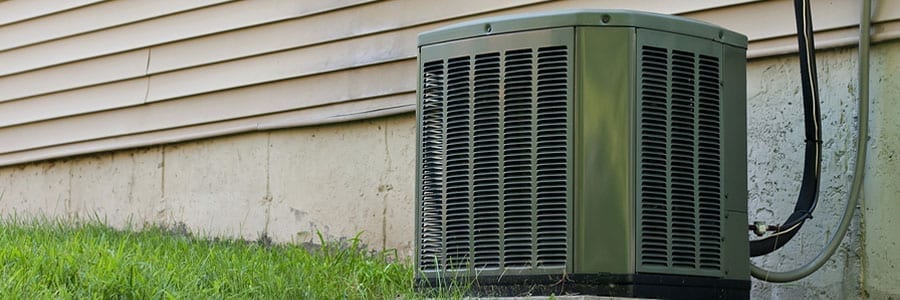Having central air installed or replaced in your home is definitely a task worth the effort and investment. After all, it provides you with heat during the low temperatures in the winter and cool air during the high heat in the summer. But, these systems don’t last forever. They actually need to be replaced as they get older, and a lot of people don’t realize this. With that being said, do you know how old your HVAC system is?
Most people will answer this saying their system is close to 10 years old, but there are others that will say theirs is over 20. If you don’t know, then you can actually tell an old system by the a/c making weird noises or the heating not providing you with the comfort that it used to. You might also notice that your heating/cooling bills are going up and that you have cold and hot spots of air at times when using the system.
Investing in a New System
If you’ve had an HVAC technician at your home more times than you can count just to make repairs and adjustments, then you might just be wasting your money. There’s only so much these experts can do, especially with an older system that has just been around for too long. If you know that your system has one foot out the door, then you need to make a decision quickly. After all, you don’t want to be out of the heat or cool air when you need it the most! It’s important not to wait around, especially if you are just wasting money each month on heating and cooling.
Are you thinking about investing in an energy-efficient unit? You can determine if you need one by going online and taking the Energy Star Yardstick Survey. This will determine whether or not you are paying too much for your energy bills as of right now. If you end up scoring under a 5, then you really should consider a new HVAC and get ready to have it installed. When you decide to buy, you will see a lot of energy-efficient systems and might wonder whether or not you really need to get one. It’s important to consider your options and find a system that is going to provide you with the comfort and energy savings that you need.
If you’re thinking about purchasing a 13 SEER HVAC system (which a lot of homeowners do), you may want to think again. This type of system is actually not an investment because it does not: increase your home value, provide you with comfort in your home, or save you money. Even the government does not recommend this, and it doesn’t have any rebates available. At the end of the day, this is a system that will actually cost you more money to buy and own. Most utility companies won’t even recommend one of these systems because they are just not worth the money.
Choosing the Right Investment
If you think that just because your system is working right now you don’t need a new one, you should seriously consider the options that are out there today. The inefficiency of that system could be costing you a lot more money each and every month of the year. A new system that is energy efficient could end up saving you that extra money plus more, which means it will eventually end up paying for itself. You should always be informed when it comes to your options, and a big part of that is doing your research. Whatever you do, try to avoid putting off buying a new unit just because you think it’s not worth the money. This decision can end up draining your wallet and costing you a lot more money into the future.
When you are looking at different systems that are available, look for incentives that can help you lower your energy bills even further. While 13 SEER HVAC systems don’t qualify for these, there are systems that absolutely do. Energy efficiency in your HVAC unit is something that absolutely does matter, no matter what other companies try to tell you. Don’t misinformation stop you from finding a unit that is truly something you can benefit from in the long run?
At our company, we want to provide you with the unit you need because creating a long-term relationship with you is important to us. We always like to tell customers to think in the long-run when buying a system. Think about what the system will cost you to own and operate into the future, not just about how much it’s going to cost you today.

